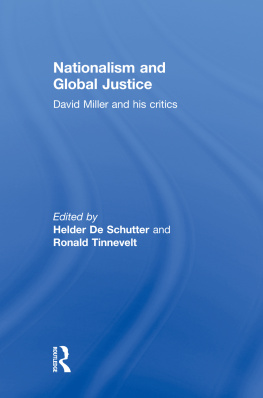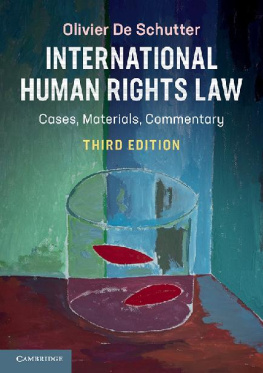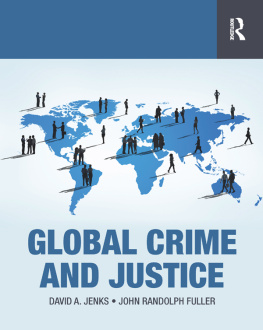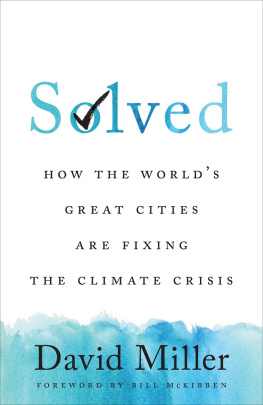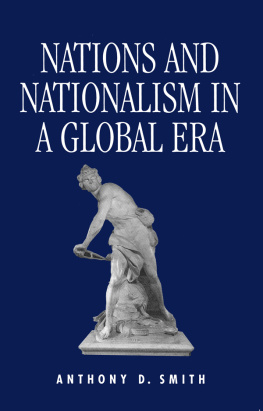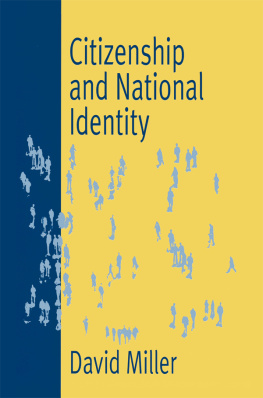Nationalism and Global Justice
The redistribution schemes of our democratic societies drastically prioritise the needs of co-nationals above those of other human beings. Is this common practice legitimate or is it a form of collective egoism? Answering this question brings us to the heart of two of the most significant debates in contemporary political philosophy: those on nationalism and global justice. Whereas the first reflects upon the duties we owe to our co-nationals, the second deals with what we owe to the distant needy.
Strikingly, the connection between both debates remains to a large extent neglected. Within contemporary political philosophy, David Miller is one of few political theorists who occupy a prominent place in both debates. His central argument is that national boundaries cannot be upheld at the cost of the basic rights of others, but that they do have ethical significance and therefore entitle us to prioritise the preferences of our co-nationals.
This collection, bringing together some of the most influential contemporary political philosophers, presents a critical review of Millers co-national priority thesis and gives a state-of-the-art overview of the prevailing positions on nationalism and global justice within political philosophy today. It will be of interest to students and scholars studying philosophy, politics, international relations and law.
This book was previously published as a special issue of the Critical Review of International Social and Political Philosophy.
Helder De Schutter is an Assistant Professor in Social and Political Philosophy at the Katholieke Universiteit Leuven. His research focuses on the historical and contemporary justifications of nationalism, language policy and federalism. Recent papers have appeared in The Journal of Political Philosophy, Inquiry, Journal of Applied Philosophy, Metaphilosophy and language Problems and language Planning. With Ronald Tinnevelt, he is editing Global Democracy and Exclusion (Wiley-Blackwell, 2010).
Ronald Tinnevelt is Associate Professor of Legal Philosophy at the Faculty of Law of the Radboud University Nijmegen. He is co-editor of Between Cosmopolitan Ideals and State Sovereignty (2006), Does Truth Matter? (2008), and Global Democracy and Exclusion (2010). He was recently awarded a Vidi scholarship from the Netherlands Organisation for Scientific Research (NWO) for a 5-year project on the relationship between moral and institutional cosmopolitanism.
Nationalism and Global Justice
David Miller and his critics
Edited by Helder De Schutter and Ronald Tinnevelt
First published 2011
by Routledge
2 Park Square, Milton Park, Abingdon, Oxon, OX14 4RN
Simultaneously published in the USA and Canada
by Routledge
711 Third Avenue, New York, NY 10017
Routledge is an imprint of the Taylor & Francis Group, an informa business
(c) 2011 Taylor & Francis
First issued in paperback 2013
This book is a reproduction of the Critical Review of International Social and Political Philosophy, vol.11, issue 4. The Publisher requests to those authors who may be citing this book to state, also, the bibliographical details of the special issue on which the book was based.
Typeset in Times New Roman by Value Chain, India
All rights reserved. No part of this book may be reprinted or reproduced or utilised in any form or by any electronic, mechanical, or other means, now known or hereafter invented, including photocopying and recording, or in any information storage or retrieval system, without permission in writing from the publishers.
British Library Cataloguing in Publication Data
A catalogue record for this book is available from the British Library
ISBN13: 978-0-415-84967-8 (pbk)
ISBN13: 978-0-415-42086-0 (hbk)
CONTENTS
Helder De Schutter and Ronald Tinnevelt
David Miller
Leif Wenar
Robert van der Veen
Gillian Brock
Kok-Chor Tan
Roland Pierik
Jacob T. Levy
Margaret Moore
Ronald Tinnevelt and Helder De Schutter
Veit Bader
David Miller
National responsibility and global justice
David Miller
This chapter outlines the main ideas of my book National responsibility and global justice. It begins with two widely held but conflicting intuitions about what global justice might mean on the one hand, and what it means to be a member of a national community on the other. The first intuition tells us that global inequalities of the magnitude that currently exist are radically unjust, while the second intuition tells us that inequalities are both unavoidable and fair once national responsibility is allowed to operate. This conflict might be resolved either by adopting a cosmopolitan theory of justice (which leaves no room for national responsibility) or by adopting a political theory of justice (which denies that questions of distributive justice can arise beyond the walls of the sovereign state). Since neither resolution is satisfactory, the chapter defends the idea of national responsibility and proposes a new theory of global justice, whose main elements are the protection of basic human rights worldwide, and fair terms of interaction between independent political communities.
Human rights and equality in the work of David Miller
Leif Wenar
David Millers position on global justice might be summarised as sufficiency not equality. Justice may require rich individuals to help poor foreigners, but it does not require equality between rich and poor for its own sake. Miller shares this general stance with many major contemporary figures (Rawls, Nagel, Scanlon, Buchanan, etc.), and shares the same justificatory burdens that this stance carries with it. The general challenge for the sufficiency not equality position is to generate an argument that is strong enough to establish the sufficientarian requirements, but whose momentum does not carry the position further into egalitarianism. The philosophical principles that keep Millers position stable are not obvious. Indeed, some of the arguments that Miller deploys against global egalitarianism may work to undermine his own sufficientarian position. Deeper explorations will be required to discover whether Millers position on global justice will be able to maintain its desired equilibrium.
Reasonable partiality for compatriots and the global responsibility gap
Robert van der Veen
According to David Miller, duties of domestic national and global justice are of equal importance, given that nationhood is both intrinsically valuable and not inherently an unjust way of excluding outsiders. The consequence of this split-level view is that it may be reasonable to prioritize domestic justice in some cases, while letting demands of global justice take precedence in others, depending on a weighting model which seeks to account for the relative urgency of domestic and global claims and the extent to which agents are more closely attached to compatriots than to outsiders. In this chapter, I argue against this weighting model on grounds of internal coherence with the theory set out in National responsibility and global justice (NRGJ). I first inquire into the conditions under which justice at home conflicts with justice in the world at large, according to Millers main principle of global justice respect for basic human rights. I then show that on Millers own understanding of the various duties of global and domestic justice, cases of conflict rarely arise, and that when they do, there is a powerful argument for prioritizing global duties on grounds of urgency, which contradicts the reasoning of the weighting model. Finally, I address a problem arising from Millers basic assumption that under-fulfillment of basic human rights in poor countries only generates claims of global justice to which rich nations are under a duty to respond, following the acceptance of a scheme of remedial responsibilities to provide aid by each of these nations. The normative structure of the split-level view set out in NRGJ needs to be clarified with respect to the key question of whether nations can be held to be under a duty of justice to bring such a scheme into existence in the first place.


